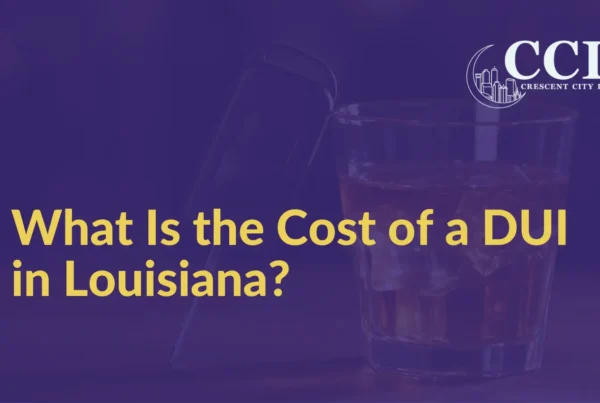The Louisiana legislative session of 2024 brought about sweeping changes to the state’s sentencing laws. These new measures have significantly increased the amount of time people will spend in prison, particularly those convicted of non-violent crimes.
Key Changes: Parole & "Good Time"
Two major laws passed during this session will have a profound impact on how sentences are served in Louisiana:
- Act 6: This law eliminates the possibility of parole for anyone who was 18 or older at the time of their offense. This change applies regardless of their behavior or accomplishments while incarcerated.
- Act 7: This law makes a significant change to the concept of “good time.” Previously, people convicted of non-violent crimes could earn good time credits, leading to an earlier release. Now, everyone, regardless of the type of crime, will have to serve 85% of their sentence. Additionally, individuals who couldn’t afford their bond will not receive good time credit for the time they spent in jail before trial.
Impact on Non-Violent Offenders
These changes disproportionately affect those convicted of non-violent crimes. For example, a person sentenced to 5 years for a non-violent crime could previously be eligible for parole after 3 years and 3 months. Now, they will not be eligible for parole at all. Similarly, their good time release date would move from 1 year and 9 months to 4 years and 3 months.
Impact on Violent Offenders
While the changes also impact those convicted of violent crimes, the effect is less severe. The primary change is the elimination of parole for these offenses as well.
Concerns and Consequences
- Increased Incarceration Costs: Longer sentences mean Louisiana will spend significantly more money on incarceration.
- Disproportionate Impact: The changes will likely disproportionately affect poor people and people of color who are more likely to be unable to afford bail and therefore won’t earn “good time” credit for their pre-trial detention.
- Limited Rehabilitation: Louisiana’s local facilities, where most people serve their sentences, offer few rehabilitative programs. Longer sentences in these facilities mean more time spent without access to opportunities for change.
- Questionable Public Safety Impact: Research shows that longer sentences don’t necessarily lead to improved public safety, especially for non-violent offenses.
Legislative Intent vs. Reality
While the sponsor of these bills stated that the intention was to create more certainty in sentencing, not to increase the actual time served, the reality is different. The practical effect of these changes is that people will spend more time behind bars.
The Role of Judges and Prosecutors
Judges and prosecutors now have a crucial role to play in ensuring fair and just outcomes. They need to understand the true implications of the new sentencing laws and consider these factors in their decisions. This includes recognizing the difference in time served under the new laws, the potential impact of pre-trial detention on overall sentence length, and the lack of rehabilitative opportunities in many Louisiana facilities.
Conclusion
The 2024 changes to Louisiana’s sentencing laws mark a significant shift in the state’s approach to incarceration. It remains to be seen how these changes will impact the state’s criminal justice system, but it’s clear that they will have far-reaching consequences for years to come.
https://legis.la.gov/legis/ViewDocument.aspx?d=1353036
https://legis.la.gov/legis/ViewDocument.aspx?d=1353037
https://legis.la.gov/legis/BillInfo.aspx?i=245666
https://senate.la.gov/s_video/VideoArchivePlayer?v=senate/2024/02/022824FNCE
https://doc.louisiana.gov/wp-content/uploads/2024/03/0c-Recidivism-Admissions-Releases.pdf






